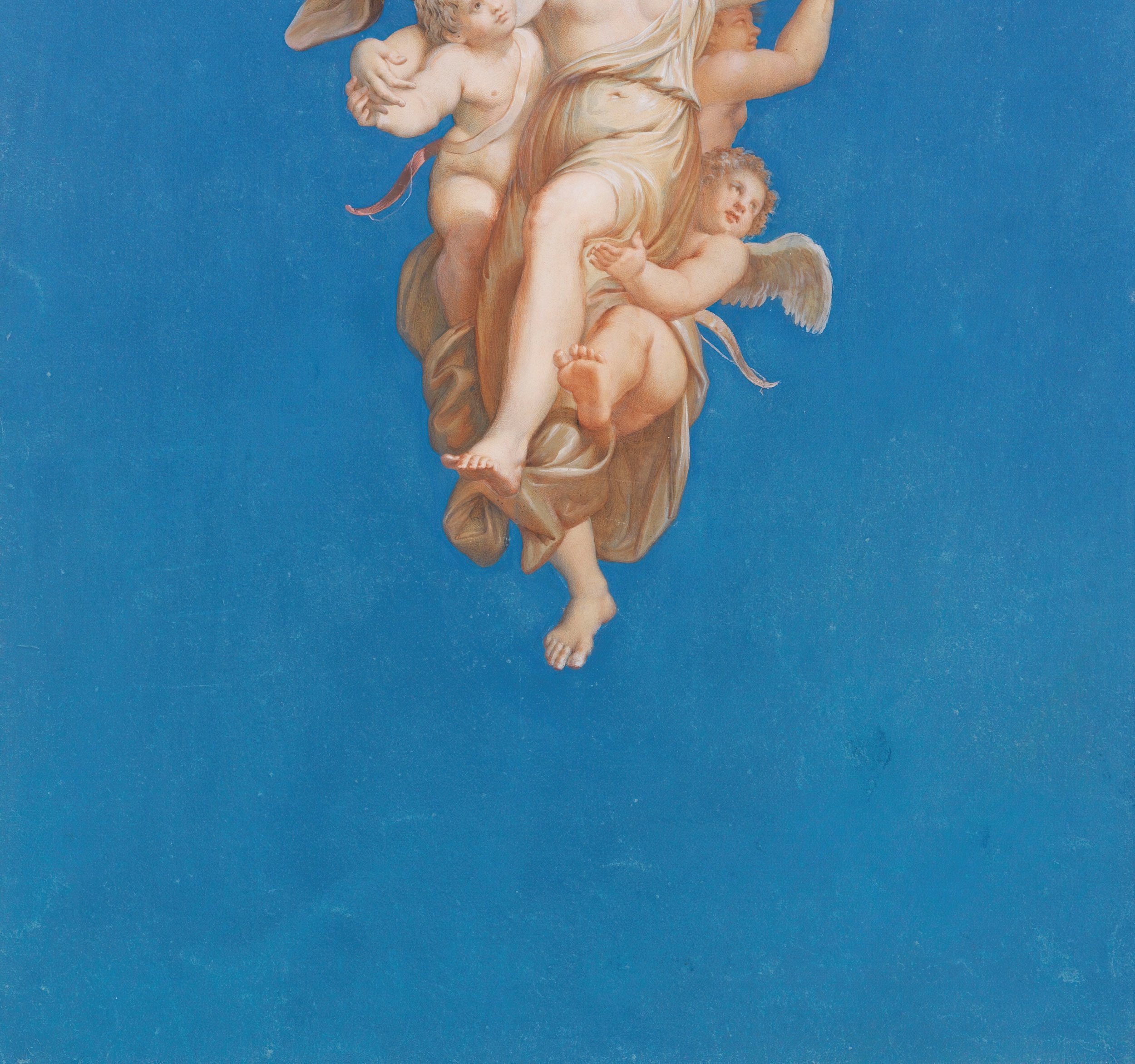Who Needs Reading?

Who Needs Reading?
Jessica Hooten Wilson
I remember the book that made me first realize I wanted to be a writer. In my small hands, I picked up a book that electrified my young imagination with how much further a text could go than the simple story laying open in my hands. When I was newly able to read, I picked up Margaret Wise Brown’s The Golden Egg, in which a little bunny discovered an egg with something inside it. “What was it?” the bunny wonders. He proceeds to conjecture: a little boy, another bunny, an elephant, a mouse. After laying out his hypotheses, he experiments with the egg by shaking it, pelting it with rocks, and rolling it down the hill. He falls asleep without an answer to his riddle. A duck pops out while the bunny sleeps and wakes his new friends with the same methods of experimentation that the bunny previously tried—a shake, a rock to the head, a roll down the hill. When the bunny wakes up, he’s unnerved about the missing egg but so happy with a new friend that they go off together happily ever after.
This is the book that made we first want to write. Why? Because I could do better than a duck in an egg. I wanted an alien, an angel, a demon, a heretofore never-before-seen creature to erupt from the egg and startle the bunny with its awesomeness. I actually wrote my own version of this book, though I cannot recall what I devised. What stayed with me was the realization that I could create, that I could imagine another version, that I could tell a different story.
*
All writing is in response to other writing. In our contemporary culture, we struggle to recognize this reality as truth. We want to be originators—the first to set pen to paper, not the imitator. As the novelist Dan Taylor jokes with young writers, “What was it like when you discovered writing all by yourself?” The greatest writers in the history of human tradition have acknowledged their mimetic practice, whether conceding how they draw from the world that is or how they model their influences in style, form, and content.
Walker Percy became a novelist after experiencing how transformative Dostoevsky’s work was to his own internal life and character. At twenty-six years old, the young doctor in training contracted tuberculosis and nearly died. While his brothers and friends served as soldiers on the front lines of World War II, Percy was forced into confinement at Trudeau Sanitorium. Lethargic from his illness, Percy spent most of his day laying down and reading. As news from the war murmured incessantly on the radio, Percy read Notes from Underground, Demons, The Idiot, a steady diet of the Russian soul searcher. Because of these novels—and a handful of Catholic friends—Percy became a convert, and later, a proselytizing artist. Dostoevsky’s stories transfigured the atheist medical doctor into a Catholic novelist. Percy invested time over the next several years imitating other writers, such as Thomas Mann and Kierkegaard. Then, when he sat down to write his own novel, he did not create ex nihilo. But drawing from all of these teachers who had become part of his very way of being in the world, Percy “landed squarely in the oldest tradition of Western letters.” Writers are made by what they read.
In The Book of Craft, medievalist Mary Carruthers corrects the modern mis-ordering of the five canons of rhetoric, and how our misconception of the relationship between invention and memory, specifically, has distracted us from the real priority. In school, I learned the canons in this order: Invention, Organization, Style, Memory, Delivery. In other words, you invented words on a page, arranged them, made them sound pretty, memorized the product, and recited it. However, Carruthers points out that memory precedes invention. For the medieval writers, one would remember all that he hoped to pass on to the next generation, what Matthew Arnold calls “the best that has been thought and said.” The word invention has its room in “inventory.” A writer is one who takes stock of what she remembers and then arranges well those ideas, images, words in a living, fresh, vital way for readers.
Do you see the implications for writers? Instead of imagining their work as contrived from their models or feeling the impossible pressure to be original, writers should see themselves as part of a tradition. Memory then becomes a moral responsibility. We are made up of our memories; if one’s memory is erased, much of their self disappears. Augustine wrestled with this idea in Confessions: “Great is the power of memory, a fearful thing, O my God, a deep and boundless manifoldness; and this thing is the mind, and this am I myself.” If our identities are bound up with our memories, then whatever we create springs from this well. We are never merely expressing ourselves in our writing; we are pouring forth from what we remember.
*
A half dozen years ago, Calvin College’s Festival of Faith and Writing handed out nametags that called all the attendees “Readers.” They meant it as a compliment. But I heard countless authors offended and even apologizing to others, “I’m not sure why my nametag says ‘Reader.’ I am a writer.” Yet writers begin as readers. If we do not read, our invention will be false. And all readers should feel the compulsion after reading to create in response to what has been read. While creation is sometimes writing, it is more often the imaginative activity of critique, conversation, and a life better lived.
All readers must envision themselves as much a part of the tradition as the writers who step into the role of text creators. The engagement with a text should be a communal, imaginative, and active process. We are bringing words to life when we read them. Without writers, too many things that should never have been forgotten would be lost, as Galadriel says in the opening of the film The Lord of the Rings. And, without the reader, the letters are dead on the unopened pages. Flannery O’Connor writes, “It takes readers as well as writers to make literature.” The relationship between writers and readers is not charged with power. It is not a hierarchy of spiritual gifts. Rather, readers and writers reciprocate giving and receiving, both bringing words to life.
Although the medieval writer understood this process without explicitly laying it out, we need reminders of this reality in our contemporary culture. We forget what it means to be a writer, a reader, and why the life of reading and writing matters. For Christians, the defense of the Word should be explained by the opening of Genesis, the beginning of John’s Gospel, or Psalm 139, in which the psalmist calls his very life an open book that God both writes and reads. How are we to read this story in the twenty-first century church? Why must we learn to read well in order to live well?
In contrast to the prevailing lies about reading, a brief excursion into the tradition brings to light the reality of reading as one of the necessary spiritual practices for a Christian. Reading is not for individual entertainment and consumption. Such an activity is fruitless. In a very real way, you might as well, watch the movie. Decades ago, Neil Postman warned us that we’d end up amusing ourselves to death. Nor is reading for the few, a mere additive to a balanced life of self-care, working out, occasional service to the community, and a few good times with friends on the calendar. Reading should be a daily reality, one that begins, for the Christian, in the Word of God and spans out to reading all the responses to that Word.
I have not written anything better than Margaret Wise Brown’s books. The author of The Golden Egg has set the bar high. But I am still a reader. And a writer. And each night, I open a book and am once again changed by what I read. Right now, my favorite moment of the day is when the whole house sleeps, and I open the pages of Rumer Godden’s In This House of Brede to see how Philippa is going to become less like a woman of the world and more like a sister in Christ. If I tried to tell you the plot of the novel, you wouldn’t care. It would strike you as boring as The Golden Egg. Yet the characters, the sound of the organ, the dialogue of the nuns, the smell of the artist’s cigarettes fill my still hours each dusk. The words come to life inside me, and I will not forget them. In a way, the life of a reader is a miniature of the calling of every Christian—to read, to remember, to love the Word, and to respond.
Jessica Hooten Wilson
Professor & Author
Jessica is the Louise Cowan Scholar in Residence at the University of Dallas. She is the author of the upcoming The Scandal of Holiness: Renewing Your Imagination in the Company of Literary Saints, as well as Giving the Devil his Due: Flannery O’Connor and The Brothers Karamazov, which received a 2018 Christianity Today Book of the Year Award in the Culture & the Arts. In 2018 she received the Emerging Public Intellectual Award given by a coalition of North American think tanks in collaboration with the Centre for Christian Scholarship at Redeemer University College, and in 2019 she received the Hiett Prize in Humanities from The Dallas Institute of Humanities and Culture.
Photography by Ralph Kayden




